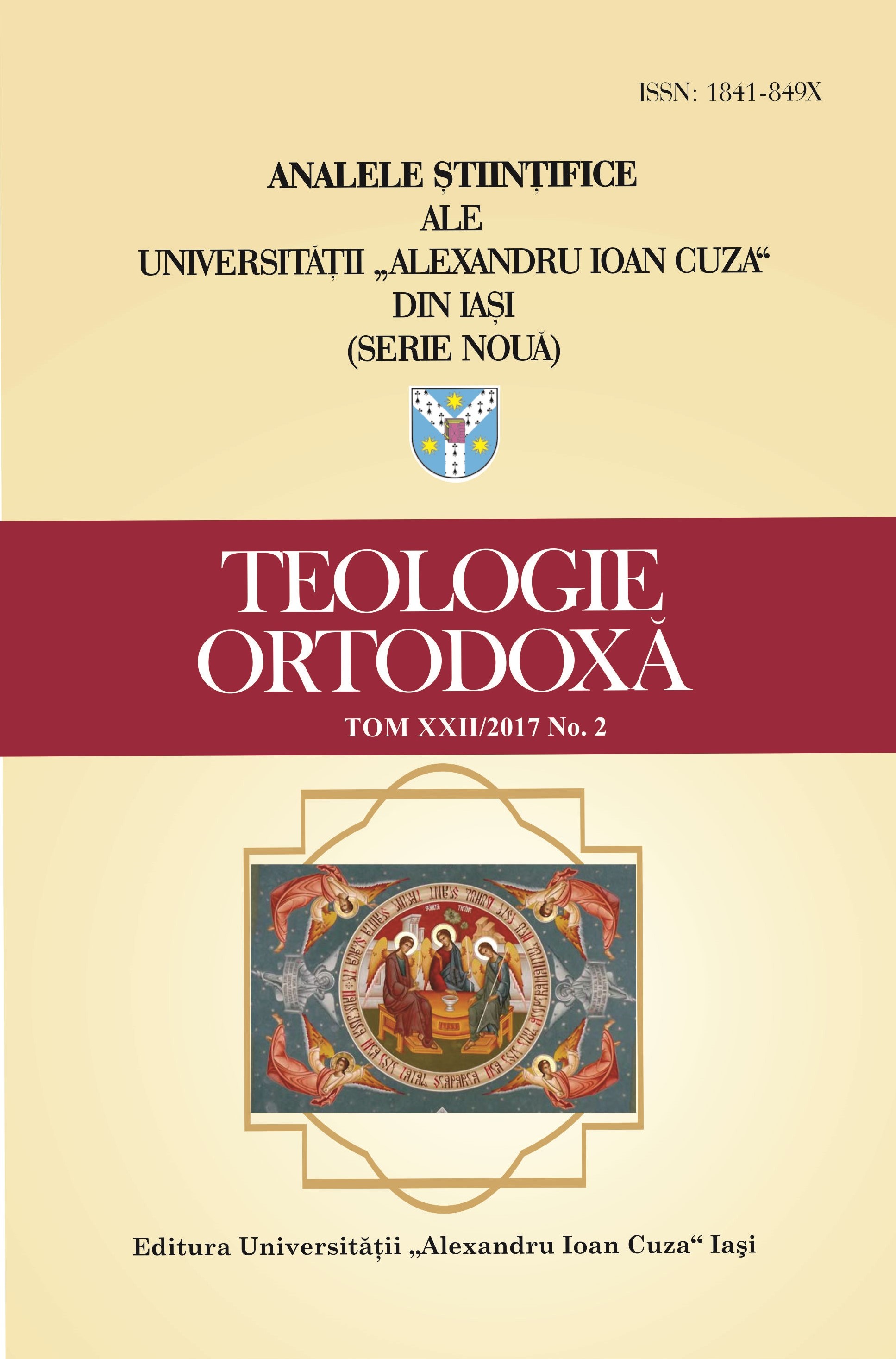Where the Suffering Comes from and What are its Couses
Where the Suffering Comes from and What are its Couses
Author(s): Ioan Cristinel TeşuSubject(s): Theology and Religion
Published by: Editura Universităţii »Alexandru Ioan Cuza« din Iaşi
Keywords: orthodox spirituality; sufferings; illness; sin; divine pedagogy; salvation
Summary/Abstract: The spiritual writings, as well as the general human experience show that in the Christian life joys and sorrows, trials and sufferings are intertwined. Thus, there is no man who, from the dawn of his life until his end, had only some of them: be it joy or trouble. Moreover, the good Christian noticed that joys which are not lived in a beautiful and pure way will turn into occasions of falling, humiliation and suffering sooner or later. Likewise, the trials that were spiritually confronted bring relief and comfort, holy joy and salvation to the soul in the end. In Heaven until the fall the first men did not know suffering, illness and pain. The condition they were in was of relative perfection, which they could transform into full resemblance to their Heavenly Father through the good exercise of liberty. They lived the happiness of communion with God and in full harmony with all the creation which served them completely. Man was created in a state of relative perfection, enjoying health both physically, that is the health of a body which fully followed his soul in that state and was also ontologically bound to God, and spiritually. This state of perfect health sprang from his pure and unaltered relationship with God. If man had not yielded to the temptation of tasting the material goods of the created world, but he would have continued to progress in good things by feeding himself from the relationship with God, this state of general perfection and health would have been absolutized and made eternal. There would have been a complete harmony between body and soul in the sense of perfect co-operation, in order to perfect the relationship with God to whom it would have been likened by the work of virtues. The same state of perfect harmony would have been imposed in his relationship with the whole world and it would have ruled between man’s body and soul forever, till his full spiritualization as the soul would have overwhelmed the body. Thus man would have manifested his original, priestly vocation as priest of all created things that were “very good” (Genesis 1: 31), and at the same time he would heve been deserved the dignity he received as their “master” and “king”. By progressing in this relationship with the world and with oneself, man has also been progressed in his relationship with his Father, by increasing his knowledge about God and his union with Him.Unfortunately, the original sin meant an existential failure which not only produced effects on his relationship with God and the world, but also manifested its effects on man himself - in his two genres: man and woman, who will experience the labour in the sweat of their face, the sorrow of bringing forth children and the suffering and death.The Holy Fathers of the Orthodox Spirituality unanimously consider that pain, suffering, illness and death (as well as their entire range of forms and manifestations) are the consequences of the primal or ancestral sin and of the man’s free will that God endowed him from creation. However man misused it. Therefore they are the effects of the initial unfortunate choice made by him.The general point was that if each of us arrives at a time when we can no longer avoid it, the most important thing is to receive it as a “cross of our personal life”, as a clue of “our inner establishment” and our moral level of living. At the same time, we must see it as a sign of God’s “visitation” and even blessed and happy “election” for our spiritual ascension and salvation.From a Christian perspective, the attitude towards suffering supposes to assume it in a saintly way and to do the “philosophy of disease” as part of the “philosophy of life”. That is to discover the benefits these “involuntary sufferings” can bring to our spiritual life. Beyond seeking or wanting them, the Christian faith shows us what the true Christian behaviour should be in the limit situations of our lives, in times of sorrow and suffering. In this way, it teaches us how to transform painful and sad trials into ways and means of spiritual growth by adding them to the happy circumstances of our existence and by giving life itself a profound meaning and a high moral sense.
Journal: Analele Ştiinţifice ale Universităţii »Alexandru Ioan Cuza« din Iaşi. Teologie Ortodoxă
- Issue Year: 22/2017
- Issue No: 2
- Page Range: 84-95
- Page Count: 12
- Language: English

